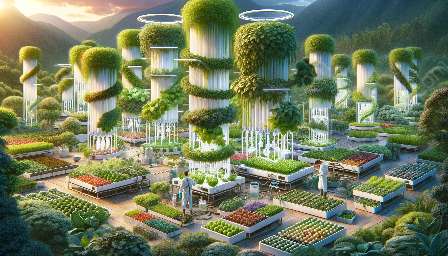Vermiculture, also known as vermicomposting, is the process of using worms to break down organic matter and create nutrient-rich compost. This natural and sustainable method of soil preparation has numerous benefits for gardening and landscaping.
Understanding Vermiculture
At its core, vermiculture involves using specific species of earthworms, such as red wigglers, to transform organic waste into high-quality compost. These worms consume organic material and excrete nutrient-rich castings that greatly benefit soil health and plant growth.
The Benefits of Vermiculture for Soil Preparation
Vermicomposting enriches the soil with beneficial microorganisms, enzymes, and humus, which improve soil structure and fertility. The resulting vermicompost enhances soil aeration, moisture retention, and nutrient availability, promoting healthy root development and overall plant vitality.
Vermiculture in Gardening and Landscaping
Integrating vermiculture into gardening and landscaping practices offers numerous advantages. Adding vermicompost to garden beds, plant containers, and lawns can improve soil quality, boost plant growth, and increase resistance to pests and diseases. Furthermore, vermiculture supports sustainable landscaping practices by reducing the need for synthetic fertilizers and promoting ecological balance.
Practical Applications and Techniques
Starting a vermicomposting system at home or in a community garden setting is relatively straightforward. By providing the right environment, bedding material, and organic feedstock, it is possible to create a thriving worm habitat that produces valuable vermicompost. Furthermore, understanding the ideal conditions and management practices for vermiculture ensures optimal compost production and utilization for gardening and landscaping endeavors.
Conclusion
Vermiculture is a captivating and eco-friendly approach to soil preparation that significantly benefits gardening and landscaping activities. Embracing this natural process not only reduces organic waste but also enriches soil, supports plant health, and contributes to sustainable environmental practices.





















